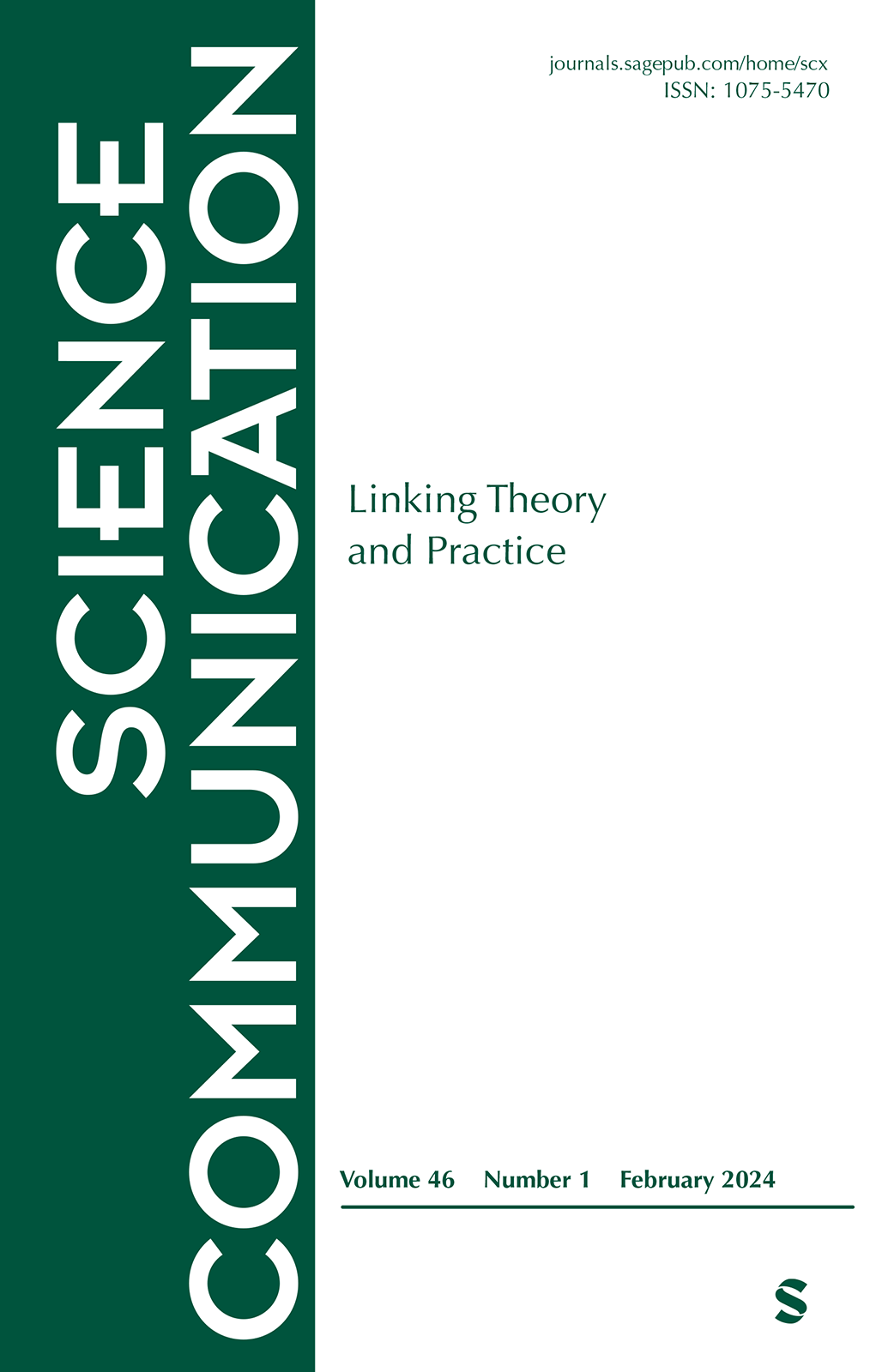On the Motivations to Seek Information From Artificial Intelligence Agents Versus Humans: A Risk Information Seeking and Processing Perspective
IF 4.1
1区 文学
Q1 COMMUNICATION
引用次数: 0
Abstract
This study investigates how anticipating an artificial intelligence agent versus human information source moderates the risk information seeking and processing model. It focuses on a behavioral proxy of seeking intention—how long a participant waited for an online consultant whose identity was manipulated. In two samples ( N关于从人工智能代理和人类那里寻求信息的动机:从风险信息搜索和处理的角度看人工智能
本研究探讨了人工智能代理与人类信息源的预期如何调节风险信息寻求与处理模型。研究的重点是寻求意向的行为代理--参与者等待在线顾问的时间,而顾问的身份是可操控的。在两个样本(N1 = 182 名学生和 N2 = 800 名旅行者)中,信息源身份以两种方式持续调节模型:首先,信息主观规范鼓励向人类寻求信息,但不鼓励向人工智能代理寻求信息。其次,当感知到的信息收集能力较高时,信息不足会导致对人类的偏爱。当信息收集能力较低时,人工智能代理则受到青睐。
本文章由计算机程序翻译,如有差异,请以英文原文为准。
求助全文
约1分钟内获得全文
求助全文
来源期刊

Science Communication
COMMUNICATION-
CiteScore
13.50
自引率
4.40%
发文量
19
期刊介绍:
Science Communication is a prestigious journal that focuses on communication research. It is recognized globally for publishing top-quality manuscripts that demonstrate excellent theoretical frameworks and robust methodology. Our journal embraces a broad definition of science, encompassing not only the natural and physical sciences but also social science, technology, environment, engineering, and health. Regardless of the scientific area, effective communication is always the focal point of our investigations.
Apart from theoretical and methodological rigor, we place great emphasis on the practical implications of scientific communication. Therefore, we expect all submitted manuscripts to address the real-world applications and significance of their research, alongside theoretical considerations.
In summary, Science Communication is an internationally renowned journal dedicated to bridging the gap between science and society. By promoting effective communication in various scientific domains, we strive to engage readers with intriguing research that has tangible implications for the world around us.
 求助内容:
求助内容: 应助结果提醒方式:
应助结果提醒方式:


